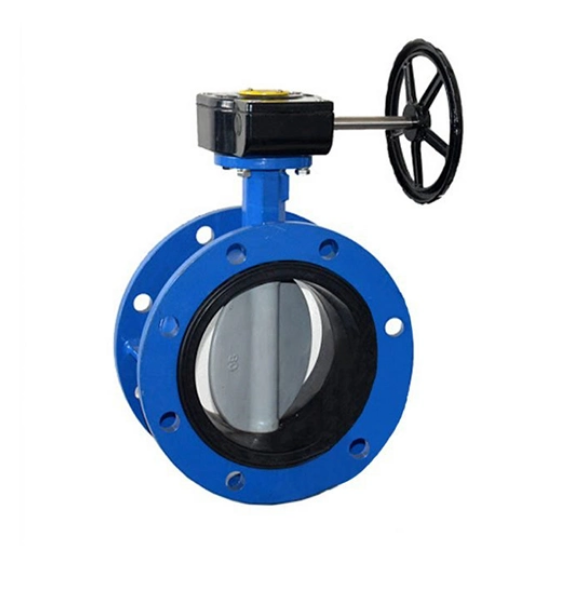GGG50 refers to a type of ductile iron with specified mechanical properties, often used in the manufacturing of valves, including butterfly valves, due to its strength and corrosion resistance. Butterfly valves, including those made with GGG50 material, play a crucial role in flow control within water treatment plants.
Here’s how they facilitate flow control:
- Precise Flow Regulation: Butterfly valves can be operated to adjust the flow of water precisely. By rotating the disc within the valve, operators can control the flow rate, allowing for precise regulation of water flow through the treatment process.
- Quick Opening and Closing: Butterfly valves are designed for quick opening and closing. This feature enables rapid adjustments to water flow, which is essential during different stages of the treatment process, such as starting and stopping flow or changing flow rates based on demand.
- Low Pressure Drop: Butterfly valves typically have a low-pressure drop across the valve when fully open, meaning they do not impede the flow of water significantly. This characteristic ensures efficient flow through the valve, minimizing energy consumption and maximizing the effectiveness of the treatment process.
- Sealing Performance: Butterfly valves, when properly designed and maintained, offer excellent sealing performance. This prevents leakage and ensures that the desired flow of water is maintained without loss or contamination, crucial for maintaining water quality standards in treatment plants.
- Corrosion Resistance: Valves made with GGG50 ductile iron are known for their corrosion resistance. This is particularly important in water treatment plants, where valves are exposed to corrosive elements in the water or chemical additives used in the treatment process. The corrosion resistance of GGG50 butterfly valves ensures long-term durability and reliability in such environments.
- Reduced Maintenance: GGG50 butterfly valves require minimal maintenance due to their robust construction and corrosion-resistant properties. This reduces downtime and operational costs associated with valve maintenance, ensuring continuous and efficient operation of water treatment processes.
- Automation Compatibility: Butterfly valves can be easily integrated into automated control systems used in modern water treatment plants. Automated valves allow for remote operation and control, enabling operators to adjust flow rates and monitor valve performance more effectively, improving overall process efficiency.
- Versatility: Butterfly valves are versatile and can be used in various applications within water treatment plants, including raw water intake, treatment processes (such as filtration and disinfection), and distribution systems. Their adaptability makes them suitable for a wide range of flow control requirements in different parts of the treatment process.
Overall, GGG50 butterfly valves are essential components in water treatment plants, providing efficient and reliable flow control to ensure the effective treatment and distribution of clean water to communities and industries. Their robust construction, precise operation, corrosion resistance, and compatibility with automation systems make them indispensable for maintaining the integrity and efficiency of water treatment processes.
